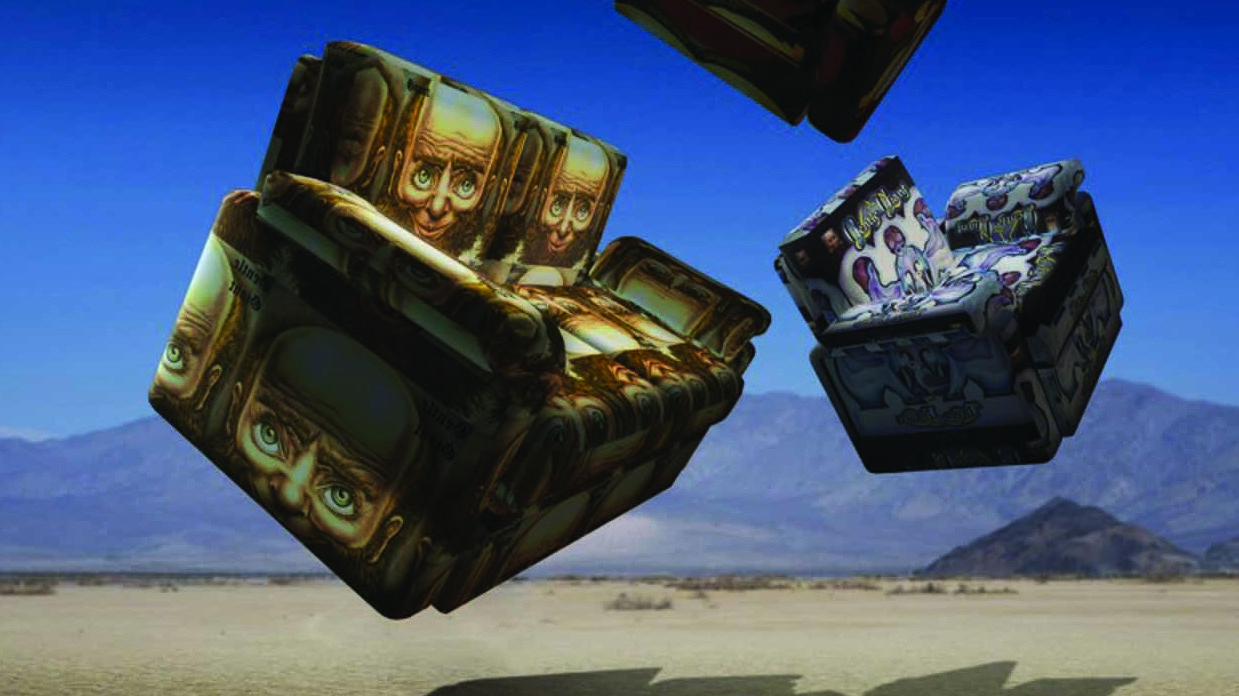You can trust Louder
When Derek Shulman bellows out ‘_The birth of a realisation/__The rise of a high expectation/Emerging successful, defiant/ Together the parts make _a giant,’ on the opening track of their 1970 debut album, the lyrics are in reality the blueprint for a new group in new times, a statement of intent to build something completely different. And Gentle Giant couldn’t be more different from the cabaret slots in which the Shulman brothers languished towards the end of the 60s as members of Simon Dupree And The Big Sound. Hailing from the boom in homegrown, somewhat contrived cash-in psychedelia, as the emergent underground rock scene was underway, it looked as though their time had come and gone. Surely there was more to life than a week-long residency at some chicken-in-a-basket club out in the provinces? As their Tony Visconti-produced debut demonstrates, the turn-around they achieved was a remarkable transformation. Freed from the restraints of knocking out old hits to largely indifferent punters, Gentle Giant could have followed down the blues rock path with long, gnarly jams. Instead they came up with orchestrated and elaborate, uncompromising creations that pushed the band to their limits and in doing so, probably curtailed their scope for commercial success.
Though the full multi-tracks of Gentle Giant, Acquiring The Taste and Three Friends are now sadly lost, this is not the first time Steven Wilson has faced the problem of missing tapes. King Crimson’s In The Wake Of Poseidon had one track upmixed from stereo to create a faux 5.1. On ELP’s debut, previously unreleased material was used to fill the surround sound gap. Here, with only nine of 21 pieces that made up the three albums available in multi-track format, the solution of running the surviving items, plus one pre-debut studio demo, into a series of suites has the effect of creating a brand new album. Despite hailing from three different years, such is Gentle Giant’s consistency both in terms of compositional technique and the band’s full-blooded presentation that there’s no discernible unevenness between the tracks as they shift from one year to another. That degree of cohesiveness in music that is so technically demanding and complex suggests a band who knew what they were doing and where they wanted to go from the start.
The rollicking 12-bar shuffle at the end of Why Not? is a vivid example of why Wilson’s sound mixes succeed.
With extras that include instrumental-only mixes that enable a fascinating degree of access to the mechanics and construction of the music, stunning flat transfers in 96⁄24 stereo of the original three albums and comprehensive band interviews and liner notes by Innerviews’ Anil Prasad, this is a nicely upholstered package. However, the real juice is found in the surround sound remix. There will be some who take the view that the original stereo mixes of these albums remain definitive. Yet during Pantagruel’s Nativity, as Minnear’s sweet voice is swathed in drifts of Mellotron and rich brass embellishments which are counterpointed by soured, descending harmonies assailing the listener from all sides, it feels as though the expansive vistas afforded by the 5.1 setting really is Gentle Giant’s natural habitat.
A particular beneficiary of Wilson’s remix is Gary Green’s stinging guitar, here given a vivacity that darts out from the speakers, especially during the Echoplexed circularities of Peel The Paint. The rollicking 12-bar shuffle at the end of Why Not?, with Kerry Minnear’s heavy Hammond stabs at the front and Green’s galloping blues licks bringing up the rear speakers, is a vivid example of why Wilson’s surround sound mixes succeed.
Such positioning ramps up with excitement without being gratuitous or gimmicky. Even the extended and heavily phased solo drumming section of Nothing At All, as it sedately rolls around the array of speakers, feels not only proportionate but actually improves upon the original version. On Schooldays, when the intimate voice at the front is answered in the round, it subtly dramatises the storyteller’s journey into the echoes of memory. Heard along with an on-screen montage of photographs of band members taken when they were schoolchildren, it’s a surprisingly affecting combination and yet another example of the way in which the band have enthusiastically embraced the creative aspects of graphics and animation that are available in the Blu-ray or DVD format. Even in the divergent and innovative early 70s music scene, Gentle Giant were a band apart. Progressive rock’s awkward squad has never sounded so vital, vibrant and still ahead of the game as they do here.
Sign up below to get the latest from Prog, plus exclusive special offers, direct to your inbox!
Sid's feature articles and reviews have appeared in numerous publications including Prog, Classic Rock, Record Collector, Q, Mojo and Uncut. A full-time freelance writer with hundreds of sleevenotes and essays for both indie and major record labels to his credit, his book, In The Court Of King Crimson, an acclaimed biography of King Crimson, was substantially revised and expanded in 2019 to coincide with the band’s 50th Anniversary. Alongside appearances on radio and TV, he has lectured on jazz and progressive music in the UK and Europe.
A resident of Whitley Bay in north-east England, he spends far too much time posting photographs of LPs he's listening to on Twitter and Facebook.


